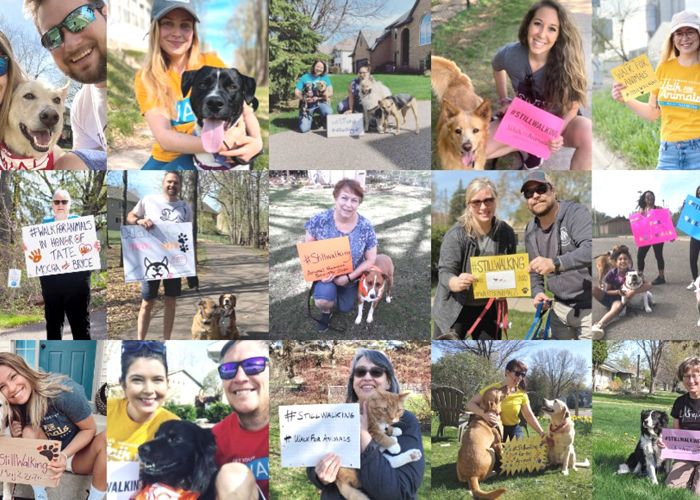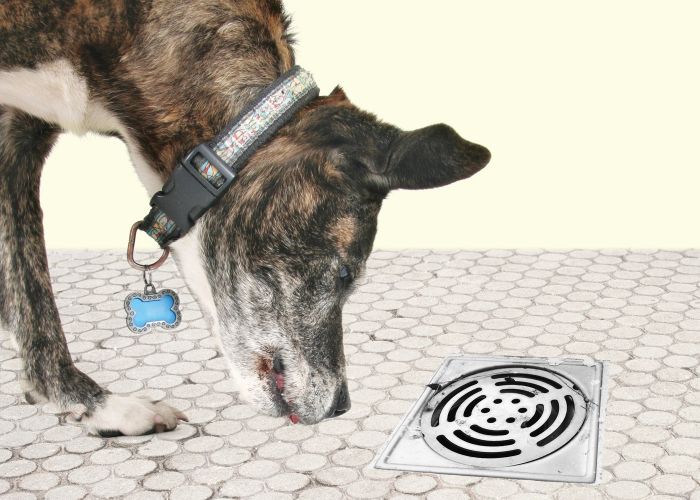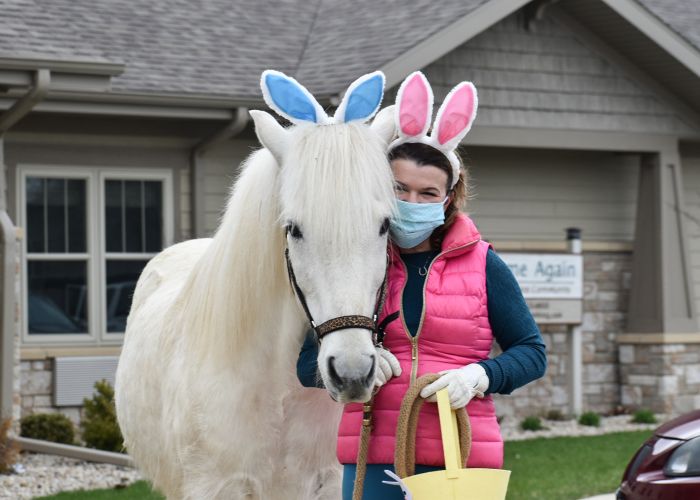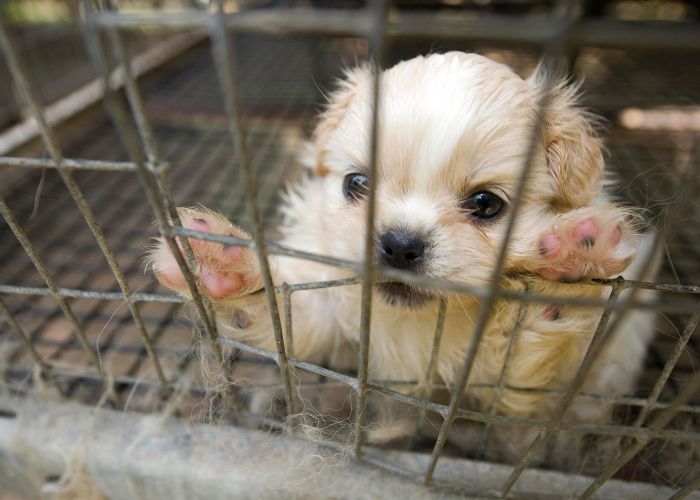New tricks for old dogs
Adoption center spreads love for 'grown-ass adults'
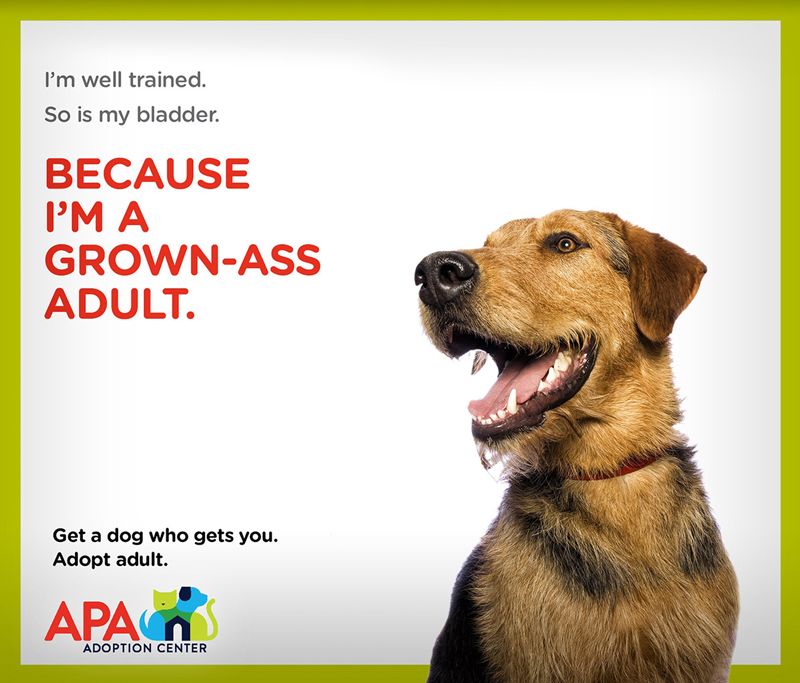
In 2017, Sarah Javier set out to solve a problem that vexes shelters everywhere: How can you help senior dogs get adopted faster?
Javier, the president and executive director of the Animal Protective Association of Missouri, took the question to her board of directors’ marketing committee. Their response? Don’t call the dogs “senior.” Call them grown-ass adults.
So that’s what they did—literally. The APA Adoption Center launched a marketing campaign in the spring of 2018, branding its older dogs as “grown-ass adults.” The campaign kicked off with a happy hour at the APA (adult beverages for grown-ass adults) and a social media takeover on National Puppy Day. The ads ran with a photo of an adult dog, the tagline “Get a dog who gets you. Adopt adult,” pithy truths about adult pets, and the big, red words “Because I’m a grown-ass adult.”
Just a few of the gems:
- “I like to sleep through the night. I bet you do, too. Because I’m a grown-ass adult.”
- “I’m well trained. So is my bladder. Because I’m a grown-ass adult.”
- “I’m mature enough to know the difference between a tennis ball and cashmere. Because I’m a grown-ass adult.”
It was social media gold, and the APA was blown away by the results. Within the first few weeks, the ads racked up over 50,000 organic shares on Facebook. Whenever they used the hashtag #grownassadult to promote an adoptable dog—mostly dogs who had been in the shelter for a while—the dog went home within one to two days. And over time, the average length of stay for adult dogs dropped from eight to five days—a decrease that’s still holding steady today.
“It’s been incredible,” Javier says. “Our following increased exponentially, and we started getting calls and donations from all over the world—people who wanted to give a donation in honor of their own grown-ass adult.”
Javier attributes the success, in part, to just how relatable the ads are. “If you’re a pet owner, you can nod your head and say, ‘Oh my gosh, yes, absolutely that’s true,’ and identify with it. It was something that had not been seen before, it was a little edgy, and it was totally identifiable.”
The stories kept pouring in, including one from a woman who told the APA that she had been planning to adopt a puppy until she saw the ads. She sent the APA a Facebook message with a photo of her new pet—an older dog—and told them she would never have considered adopting adult if it weren’t for the ads.
Over a year later, the campaign still has legs. The ads inspired a local brewery to create an APA—an American Pale Ale—benefiting the APA. The organization launched a new version of the campaign for cats, and together with Darling Brand Makery, the marketing firm it partnered with on the campaign, the APA is creating versions of the ads that other shelters can pay a small fee to download, co-brand and use for their own campaigns.
“We know this campaign can benefit others, and we want it to benefit animals everywhere,” Javier says. “If we can help another shelter, then that is absolutely what we want to do.”


